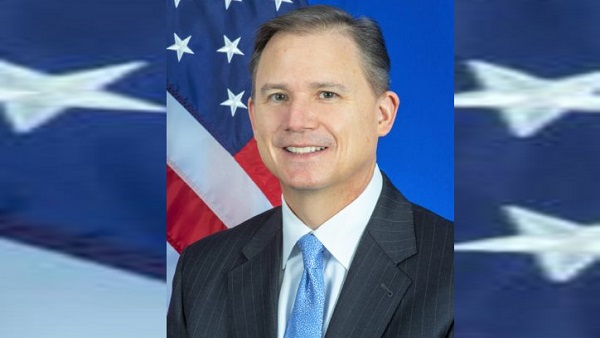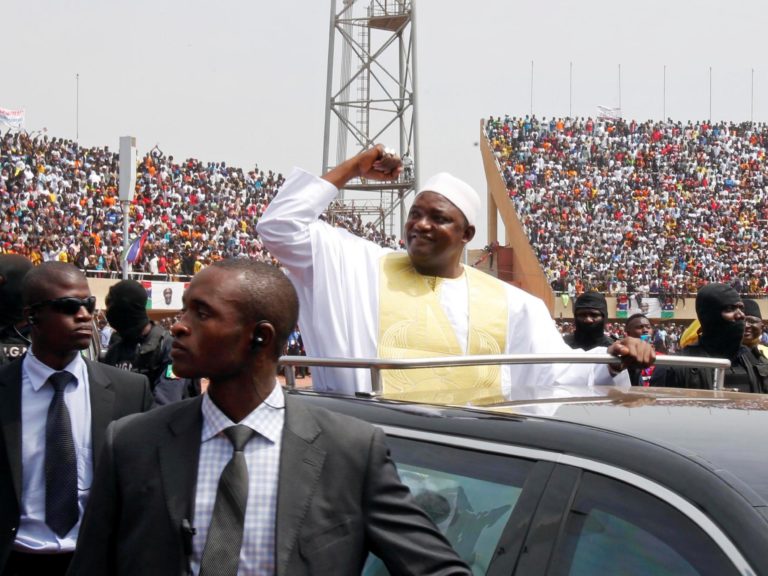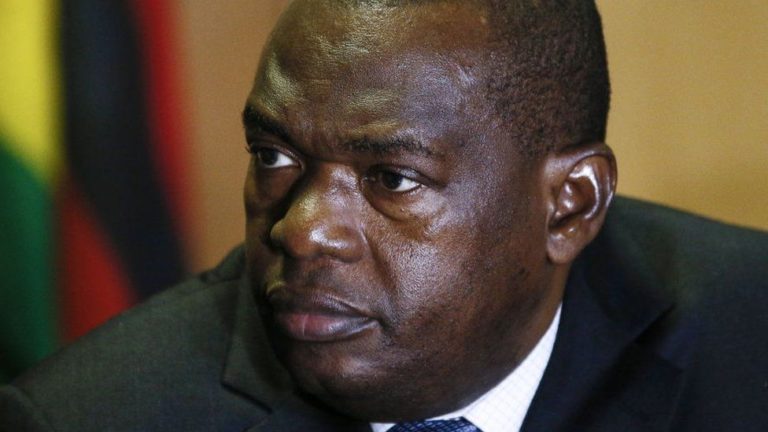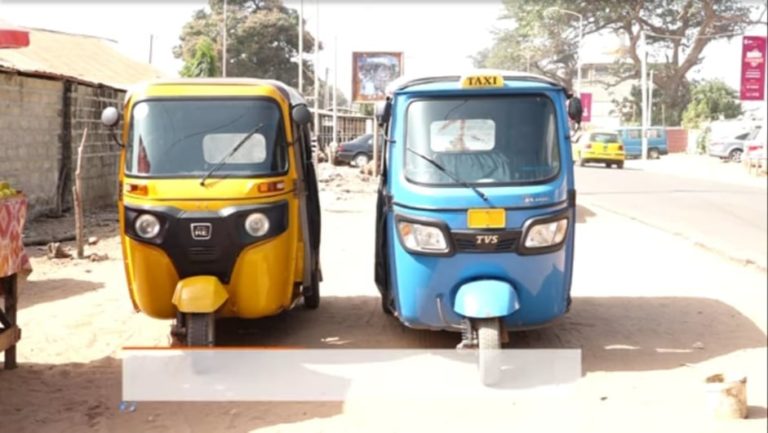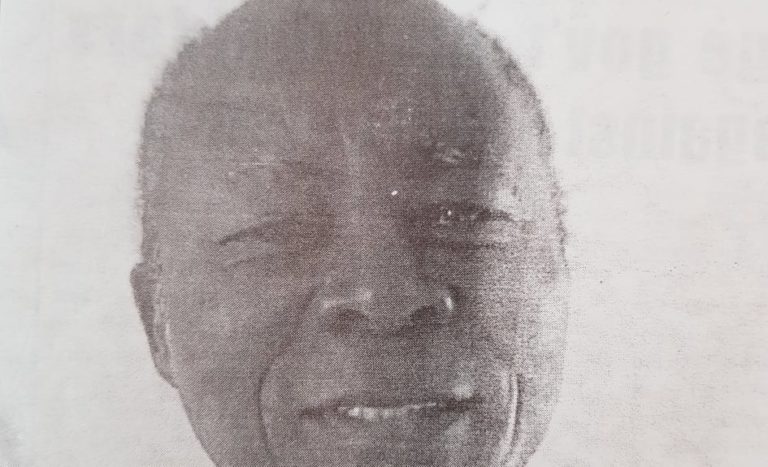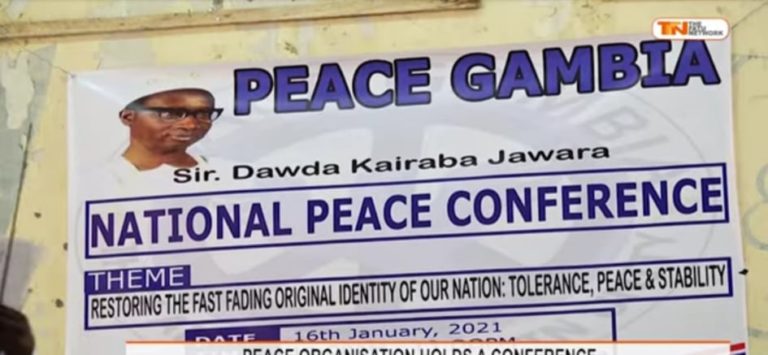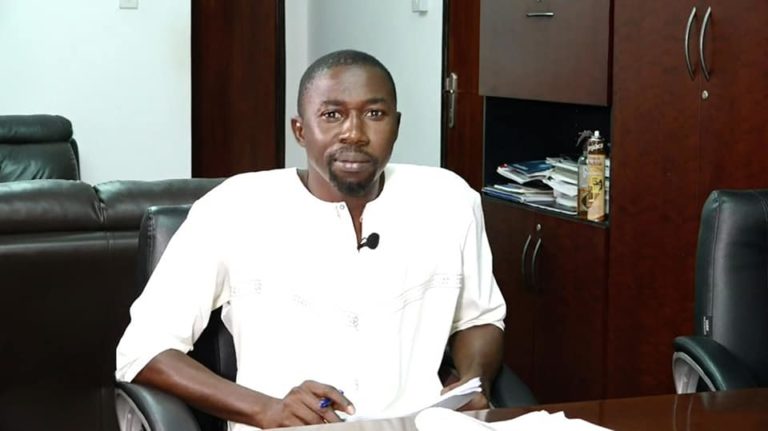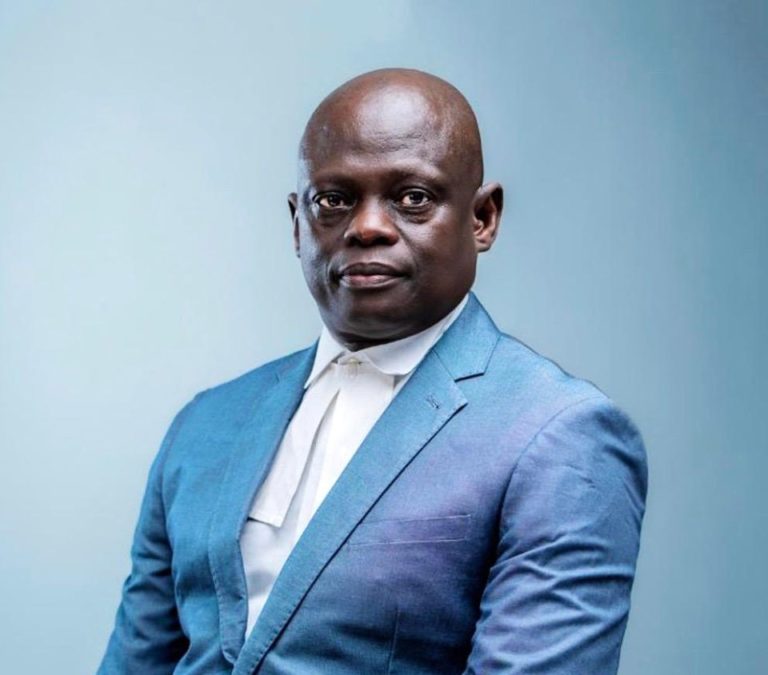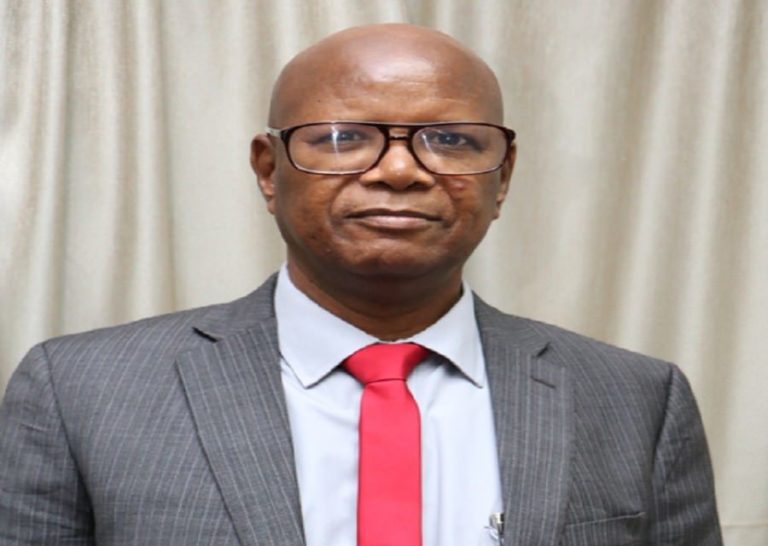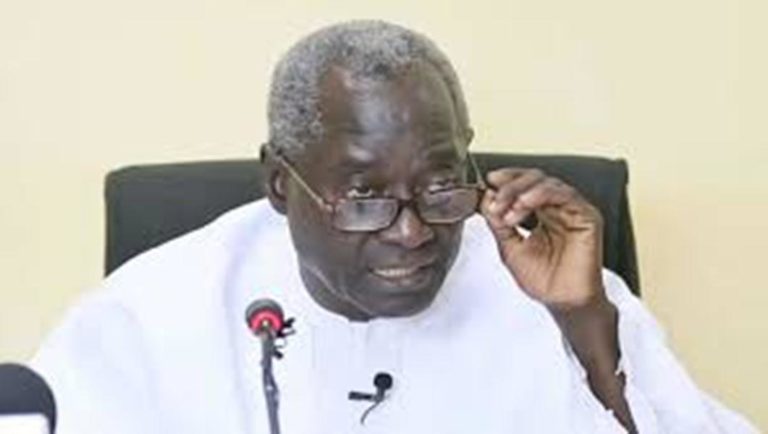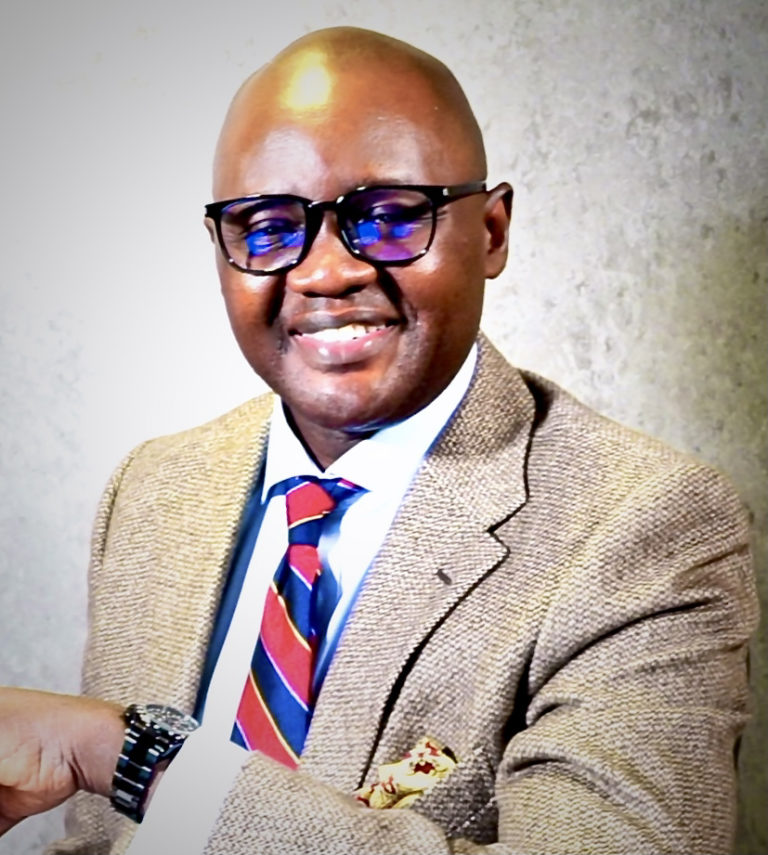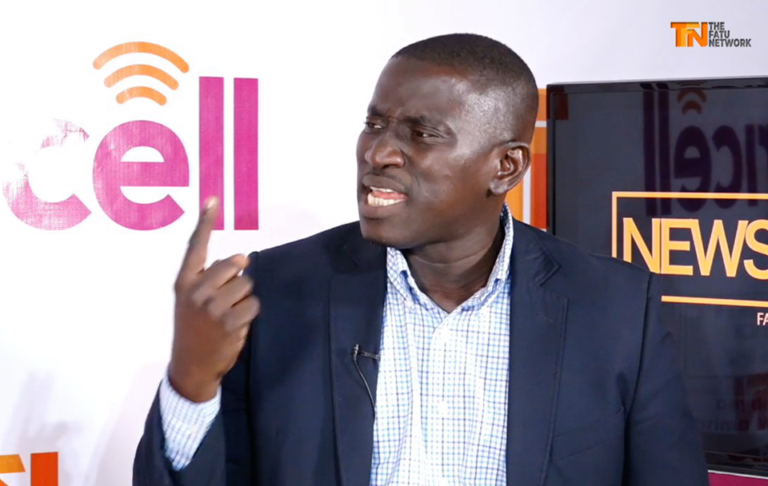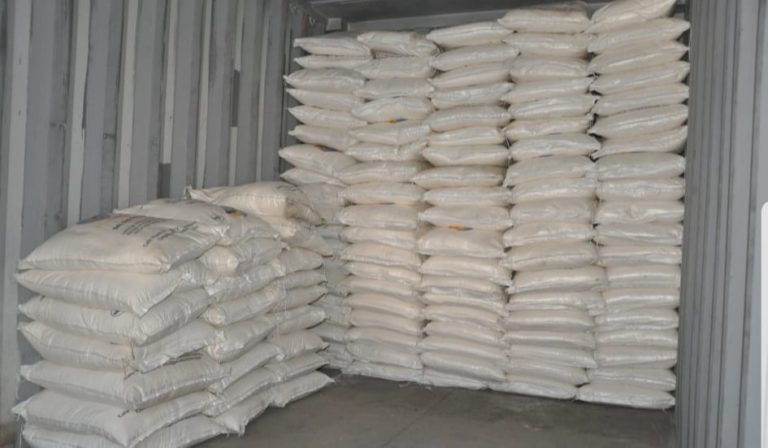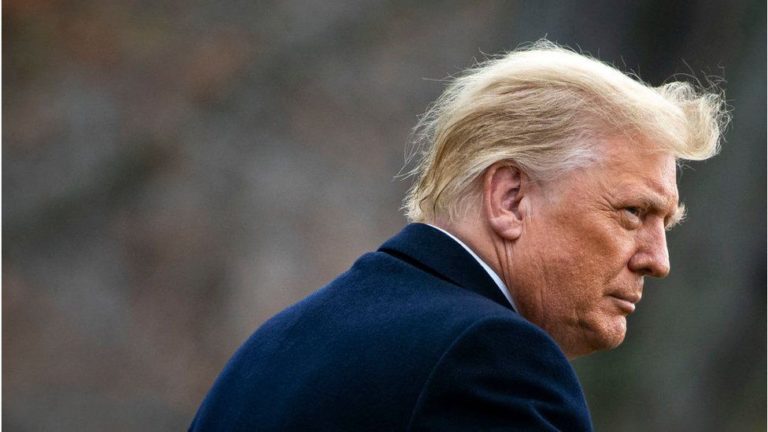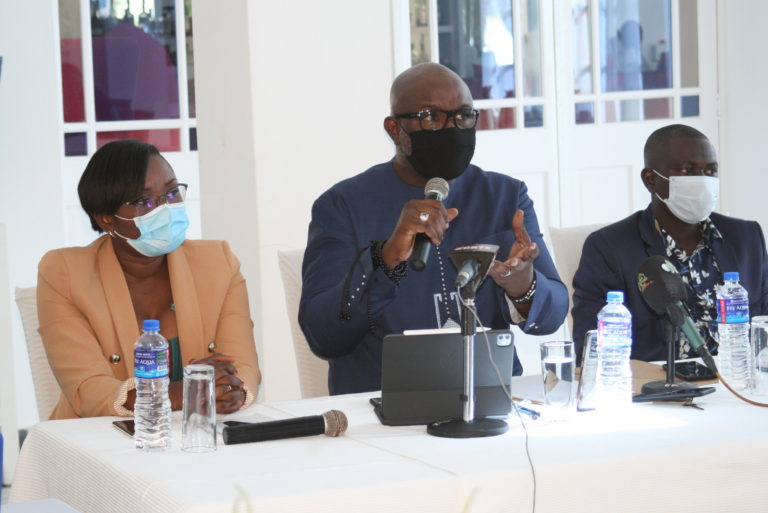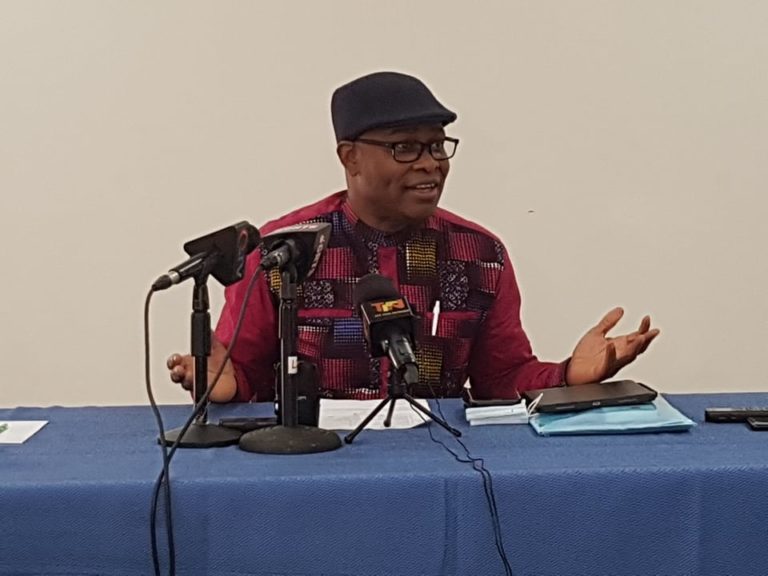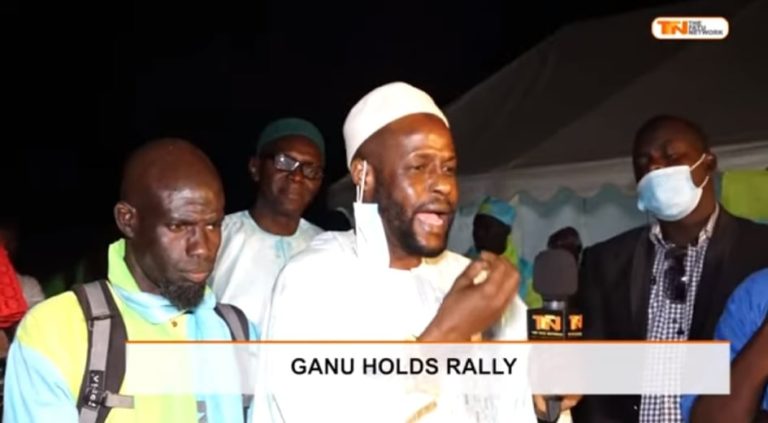President Barrow’s four years in power
By Basidia M Drammeh
Today marks President Barrow’s four years in power after being sworn in Dakar amid an unprecedented political impasse due to former President Yahya Jammeh’s dramatic U-Turn on an initial decision concede defeat. Since then, a lot has happened; hence I have been struggling with capturing all that had occurred in 1,460 days in one single article.
Nonetheless, it will be fair to say that the Barrow Administration and its Coalition members have mainly failed to live up to the Gambian people’s high expectations who voted for change in 2016. President Barrow had deviated from the mandate on which they (coalition) campaigned and won the election. The Gambians wanted a break away from the dark past and yed sweeping reforms that would usher in a new system. Under Jammeh, The Gambia had been badly wounded and scarred by gross human rights violations, mismanagement of public funds, extra-judicial killings, repression of freedom of expression and the dismantlement of almost all democratic tenets.
Four years down the line, some of the hallmarks of the former regime remain alive and vivid. Corruption is rampant, patronage is the order of the day, hiring and firing without advancing reasons remains, pomp and praise-singing accompany presidential convoys. A fleet of luxurious vehicles accompanies the president. Governors and local chiefs are deeply engaged in partisan politics. Top Government officials and technocrats are dragged to partisan politics. Diplomatic and service passports are issued to connections rather than on merit. Hiring is mostly done based on who you know rather than what you know. And the list goes on and on.
Yes, we have freedom of speech, freedom of assembly and free press. Yes, we no longer have political prisoners languishing in jail just because they chose a party other than the President. Yes, we don’t have NIA operative snatch opponents of the regime, real or perceive, and drag to torture chambers. Yes, we no more see family members, relatives, loved ones disappear into the unknown or get murdered by the so-called junglers. Yes, the President has demonstrated his respect for the respect and the independence of the judiciary.
As positive as they may be, these developments are no privileges or handouts because the Gambians have four voted and fought for them. Gambians have voted for both regime and system change involving civil service reform, security sector reform, and public funds’ proper management. They wanted to see an end to self-perpetuation. They wanted to have a new Constitution that would reflect the hopes and aspirations of the Gambian people. Ordinary Gambians wished to see a reduction of commodity prices. Gambians wanted to see an end to patronage and impunity.
Down the line, many of these hopes have dashed. Key among the broken promises is the President’s pledge to serve for only three years after heading a transitional and transformation-oriented Government. Not only did the president decide to serve out his constitutionally mandated term, but he also formed his own party to contest the next presidential election.
A draft Constitution that cost 116 million dalasis was written to usher on a third republic only to be dumped by the President’s allies in Parliament at his behest. The president’s closest aides were publicly critical of the document describing it as discriminatory to Barrow. The Janneh Commission’s recommendations, set up to probe the former regime’s financial malpractices, were largely overlooked by the President. There are mounting concerns that the Truth, Reconciliation and Reparations Commission might meet a similar fate. The GRTS, which was once called JRTS for being the mouthpiece of the former Gambian president Yahya Jammeh regularly airs the president’s NPP rallies. The Meet the People’s Tour that is designed to avail the president of the opportunity to listen to the people about the impact of the Government’s policies on them, has been transformed to lambast rival political parties and heap praise the president. Electricity and Water remain scarce and beyond the means of the majority of Gambians. Internet service exorbitantly expensive. The President has promised to set up an anti-corruption watchdog to fight endemic corruption, yet the promise remains elusive.
The President’s supporters would refer to the bridges and the roads the President has either initiated or inherited from the President as clear signs of his development crusade. However, the question remains: Was Barrow elected to build roads or build institutions?
Sibusiso Moyo: Zimbabwe foreign minister dies from Covid-19
Zimbabwe’s Foreign Minister Sibusiso Moyo has died after succumbing to Covid-19, the government says.
Born in 1960, the former army general gained international prominence in 2017, when he announced the military takeover that ousted long-serving President Robert Mugabe from power.
Zimbabwe has recorded a surge in Covid-19 cases since the festive season.
There have been 28,675 cases and 825 deaths since the virus was detected in the country last March.
More than half of the cases have been since New Year’s Day, Reuters news agency reports.
The rise in infections has been blamed on people travelling from South Africa during the festive season.
South Africa has seen a spike in cases after a new fast-spreading variant of the virus was detected in the country in November.
South Africa has recorded the highest number of cases in Africa – more than 1.3 million – and the most deaths – more than 38,000.
Mr Moyo is the second senior government figure to die from Covid-19 in Zimbabwe. Retired general and Agriculture Minister Perrance Shiri succumbed to the illness last July.
In neighbouring Malawi, President Lazarus Chakwera has taken personal blame for the recent rise in Covid-19 cases in the country.
There had been a “collective sense of relaxation in adherence to Covid prevention measures among many Malawians including myself”, he said last week.
Malawi’s Local Government Minister Lingson Belekenyama and Transport Minister Muhammad Sidik Mia died from the illness last week.
Mr Moyo died in a local hospital on Wednesday, President Emerson Mnangagwa’s spokesman George Charamba said in a statement.
Mr Mnangagwa described him as a friend and a “true hero”.
“He fought his entire life so that Zimbabwe could be free,” the president said. (BBC)
(T)homas (G)regory (G)eorge Senghore, J.P. (1936-2021): Gambian Civil Servant, Governor of Central Bank of The Gambia and a staunch Catholic
By Hassoum Ceesay, historian
I have lost a good uncle and friend of mine last weekend, when Mr. T.G.G Senghore, a pioneer Gambian Civil Servant, third Governor of the Central Bank of The Gambia and a staunch Catholic, died at the age of 83. He has been ill for some time, in fact since the demise of his loving wife a few years ago.
He was one of the first Gambian Divisional Commissioners after Independence. He spent two years at Georgetown as Commissioner of Maccarthy Island Division. In fact, he had the unenviable task of announcing the death of Abdou Saidykhan, the famous hippo hunter, who was killed by hippos off Kuntaur in 1968.
From Georgetown, Mr. Senghore came back to the Ministerial Civil Service cadres and in 1972, he was promoted to permanent Secretary Ministry of Works, where he worked with Sir Alieu Jack, the PPP stalwart and powerful Banjul political leader. It was under his watch as Permanent Secretary that the Farafenni-Laminkoto road was completed.
He was returned to the Ministry of Finance in 1974 as Permanent Secretary. With Sheriff Dibba(1937-2008), he helped to create and put the Central Bank of The Gambia on very sound footing. Once in my office, Mr. Senghore told me how as Permanent Secretary at Finance, he worked with I.M Garba Jahumpa to make The Gambia one of the first African countries to get aid from the Arabs a few months before the outbreak of the Arab-Israeli War of 1973. Mr. Senghore was one of the civil Servants most adept with managing The Gambia’s Finances, as he had worked as Supernumerary Officer, a sort of Director of Budget and Salaries, from 1969 to 1972. T.G.G grew up in the Colonial Service under the watchful tutelage of British officials like K.J.W Lane, D.A Percival, F.A Evans whom the young Gambian cadre like T.G.G, Ousman sallah, Omadi Diarra, Tapha Sosseh, S. M. Sissioho, demba Ndow, Hatib Janneh and other replaced at independence in 1965.
T.G.G served as PS at Finance from 1974 to 1982 when he was appointed Governor of the Central Bank of The Gambia(CBG) following the departure of Mr. S.S Sisay to become Minister of Finance for the second time.
At the CBG, he completed the Gambianization of the Bank ensuring that young Gambian economists filled up the most senior positions such as General Manager, which Mr A.A Faal(1931-2012) took over from the departing Burmese Mr. Tin Tun. Indeed, for a lustrum, it was the signatures of Mr.T.G.G Senghore and Mr. A.A Faal that were put in our dalasi notes. One day he passed by to see me in the National Museum and I asked him how it felt having one’s signature gracing the national currency? ‘Well, it was simply a signature. It did not give me any extra Dalasi, or made the Dalasi in my pocket more useful…’ Such was his modesty. During his tenure, the Central Bank of The Gambia introduced the octagonal or 8 sided Dalasi coin to replace the Dalasi note. Presenting the new coin to President Jawara at State House, in January 1988, he told the Gambian leader that he had ordered a stock of 6 million coins from the UK Royal Mint, and minting the stock cost D920,449! Such was T.G.G’s exactitude!
It was therefore a surprise that in March 1988, he suddenly resigned from the Governorship of the CBG. The Gambia was shocked that anyone would resign from such a plum job. He told me he did so out of modest principles; when he found himself headed on a collision course with his boss, S.S Sisay, on an issue key to his work as Governor. I have asked him many times, why he resigned as Governor of the CBG? He always refused to say exactly. It was clear that this was in the middle of the Economic Recovery Programme(ERP) when the PPP government was forced to implement stringent structural adjustments such as slicing off the fat in the Civil Service and selling off loss making parastatals like The Gambia Commercial Development Bank. Mr. T.G.G was replaced by another prominent Gambian fiscal expert, Mr. Mamour Jagne.
However, his resignation from the CBG was headline news in Banjul in March 1988. ‘Central Bank Boss Quits’, ran the banner in The Gambia Onward. In the front page story, the newspaper described T.G.G as ‘competent, reliable, efficient and honest, dedicated…’
Following his resignation, T.G.G did not return to the Civil Service. He retired early, and dedicated himself to Church work. In 1975 and 1979, the Pope Paul VI decorated him for service to the Catholic Church and in 1991, he played an leading role in His Holiness’s visit to Banjul. His name sake, he told me, Abbe Thomas Gregory Jobe (1906-1995) was a noted Senegambian priest and church man and diplomat.
He also took up videography and would occasionally find me in the archives to fact check his archival details. I hope that his trove of films on events in this country for the past 40 years will be preserved for posterity.
In his demise, The Gambia has lost a faithful servant; loyal, dedicated and modest. Me, I have lost a friend who kept at me so much, and always led me to new sources on contemporary Gambian history. To his family and friend and church colleagues, I convey my sincere condolences and pray that his soul rest in peace.
(T.G.G Senghore, J.P, Gambian Civil Servant, Governor of Central Bank of The Gambia and a staunch Catholic, born in Bathurst, 1936; died in London, UK, 14 January, 2021),
Hassoum Ceesay, Historian
Detained at a Four Star Covid-19 Hotel
By Lamin J Darbo, lawyer
A global pandemic, a national concern, and a concession the Government has a legitimate responsibility to manage international travel with a view to protecting larger Gambia.
Notwithstanding, the Government must execute its responsibility within a framework sensitive to the plight of those caught up in the Covid-19 nightmare.
But the experience of Gambians and non-Gambians who flew into the country on Brussels Airlines SN 0217 from Brussels to Banjul encountered a nightmare situation on arrival at the airport. As Brussels is a world class air transportation hub, Brussels Airlines operates therefrom the magnificently engineered and opulent Airbus A330-200 to Banjul but the beautiful flying experience on 15 January was to encounter an utter farce in the hands of the Gambia Government for disembarking passengers.
After clearing Immigration, and Customs, we were effectively arrested, detained, and escorted in a bus to the Four Star Metzy Residential Hotel to quarantine.
Others were transported to and detained at Badala Hotel.
Detained because of a lack of choice in the matter, and because no one travels from London, Brussels and airports across the world direct, or on transit, without taking and obtaining a NEGATIVE Covid-19 test result and fit to fly certificate from officially certified private outfits in originating countries within a 72-hour departing window.
It is commendable that the Gambia Government insists it must retest travelers from hotspot countries on arrival at Banjul. Since its press release on 05 January, the hotspot designation has altered tremendously and the flying environment itself exerts great influence on infection.
In the circumstances Government must reassess its press statement of 05 January.
It must also institute a humane environment affecting air passengers arriving in Banjul.
Some passengers from the same Brussels Airlines SN 0217 were let go at the Airport, practically endangering the larger public for their Covid-19 condition could not be ascertained on arrival. There were suggestions that Service, and Diplomatic, passport holders are exempt from the testing regime. Covid-19 affects people not passports and clearly therefore a passport holder’s mere official status is not a prophylactic against infection and public endangerment.
The larger public must not be endangered in this typically unreasoned manner.
Although the arrested SN 0217 passengers were accorded rapid access through the congested coastal road to their detention at Metzy, and Badala, many spent the night outdoors as they could not afford the D2,300 per night price tag. No food or water was provided to those detained and there were no officers around to explain the detention regime and the next steps before freedom.
More egregiously, as of right now, i.e., 13:00, there was no sight of the sample takers in spite of the fact that those detained must decide whether to rebook their hotel rooms at noon. The unprofessionalism and lack of care for fellow citizens is staggering considering some Government staffers in the Covid-19 crusade are also resident within the detention hotels, for the purpose, I guess, of ameliorating the anxieties and sufferings of detainees.
Rumour abound that Covid detainees will be released upon testing but if that is accurate, it exemplifies breathtaking callousness that documented testing was not undertaken at the airport so arriving passengers could avoid such harrowing cruelty like sleeping in the forecourts and reception and pool areas of expensive hotels instead of with family and friends.
I struggle to comprehend that my fellow travelers pre-2017 such as the Government Spokesman, and a myriad of advisers in Presidential circles, are living large this weekend of January 15 as LJD is detained with Gambian and non-Gambia fellow travelers in a Covid-19 hotel.
I am happy to go all the way but in line with the constitutional dicta of non-discrimination, anyone in SN 0217, no matter how mighty in status, must be quarantined, or is that detained?
The national interest demands it!
In the spirit of the rule of law, I hope my adviser-friends help engineer a humane Covid-19 detention mechanism with their principals.
The current regime is mindless, callous and not fit for purpose.
Lamin J. Darbo
Four Star Metzy Residence Hotel, Gambia
DEMBA ALI JAWO – COMMENTARY: Few Months Before Elections, Still No Electoral Reforms
When Gambians came out in large numbers and against all the odds on 1st December 2016 to vote out the dictatorial regime of President Yahya Jammeh, the foremost thing in their minds, among other things, was to reform the bad system in place in the country. Among those reforms they wanted to see was a new constitution and a much fairer electoral system.
However, four years down the line, none of that has so far been achieved, and everyone is wondering what might have gone wrong. Why has the coalition government not only so far failed to carry out any such necessary reforms, but the old system seems to be thriving instead?
As the whole country seems to gear up for the presidential elections scheduled for December, instead of concentrating on the reforms they promised Gambians, virtually every action by President Adama Barrow and his government is being done with his re-election in mind. We have all seen how the recently concluded ‘Meet the People Tour’, for instance, had been transformed into a political jamboree, with virtually everyone talking about supporting President Barrow’s political agenda and voting for his National People’s Party (NPP), completely deviating from the main objectives of the Tour’s official objectives.
It is quite obvious that even the ongoing efforts to resuscitate the Draft Constitution 2020, with the coming of former Nigerian President Goodluck Jonathan to help in the process, is no doubt part of President Barrow’s political agenda to get re-elected in 2021. The whole process has been politicized from the very beginning, particularly by his supporters and sympathizers who campaigned against the Draft as well as voted against it in the National Assembly. It shows that they were willing to disregard the more than D116 million spent on the draft just because a few clauses did not seem to favour his political ambitions. It is therefore quite obvious that at the end of the day, whether the process to resuscitate the Draft succeeds or not, the entire process would cost the Gambian tax payers nothing less than D200 million, considering the fact that the involvement of President Jonathan and his team would also no doubt have some costs. Is it really worth spending all that money on a Draft that could have been quite easily passed at the very first time it was introduced in the National Assembly?
Despite all that however, there is still no guarantee that whatever the consensus may be at the end of the Jonathan process, the Draft would pass in the National Assembly. There is a possibility that if any of the clauses of the original Draft are removed or amended, the majority of members that voted for it in the National Assembly may this time round vote against it. It is also very likely that members of the APRC would vote against any draft that seeks to replace the 1997 Constitution, which they see as Babili Mansa’s legacy that should not be tampered with. Therefore, the Barrow administration has quite an uphill task to resuscitate the 2020 Draft Constitution.
Was it really necessary to invite President Jonathan all the way from Nigeria to come and mediate in the process when all that President Barrow could have done was to invite the various stakeholders to discuss the matter and come to a consensus? Therefore, many people feel that there was no need to invite any outsider to help us do that, as the Draft is a Gambian document, drafted by Gambians and there was absolutely no need to involve anyone else in the process.
In addition, if the Deputy Speaker of the National Assembly had not turned down the motion recently moved by Halifa Sallah, Member for Serekunda, to rescind the decision of the National Assembly to vote against the Draft at the second reading, there would not have been any need for the process led by President Jonathan. It however appears that as a result of the pressure being applied on the government by donor partners, President Barrow and most of his supporters who voted to abort the process in the National Assembly are now willing to reconsider their position on the process and would therefore likely vote for it if it is re-introduced, albeit the fact that they are still insisting on changes to some clauses. Therefore, the proposal by Halifa Sallah would have been the easiest way forward as it would have given opportunity to everyone to partake in the process until a consensus is reached, of course with far less cost than bringing in “experts” from Nigeria.
However, even assuming that the Jonathan process eventually succeeds and the Draft is re-introduced in the National Assembly and it passes through the different stages, there is still no guarantee that there is enough time left to complete the electoral reform process in order to hold the presidential elections in December as scheduled. There are several processes and reforms that still need to be put in place before the Independent Electoral Commission (IEC) can re-assure Gambians that it is ready to hold credible elections. Already, we have seen the Commission postpone indefinitely its plans to carry out the general voter registration, apparently due to its failure to get approval to order electoral materials. There are also several other logistical problems that the Commission needs to deal with in order to demonstrate that it has the capacity to conduct credible elections by December.
It is a well-known fact that electoral reforms was one of the fundamental pledges made by Coalition 2016 when they were campaigning in 2016, especially considering the fact that it was one of the demands of a majority of Gambians during the former regime, leading to the arrest and harassment of many people and the death in custody of people like Solo Sandeng. One would therefore wonder why for more than four years in office, the Barrow government has hardly done anything in that regard. Instead, President Barrow seems to be more pre-occupied with self-perpetuation rather than carrying out the reforms that he was elected to perform.
It is indeed quite hard to see what the IEC had been doing since 2017 when everyone had expected that by now, it would have put in place most of those reforms, such as the enactment of an Elections Act and re-demarcation of constituency boundaries, among other necessary reforms, culminating in general voter registration. It is therefore hard to see how the Commission can accomplish all those tasks before the commencement of the 2021 electoral cycle. There is a danger that if the Commission pushes ahead with the reforms without adequate preparations, we may end up with a half-baked system that would be a prescription for chaos. Therefore, in view of the slow pace of the electoral reforms, it is quite necessary for the IEC to have a Plan B in place because all indications are that there is not enough time to accomplish the process before December.
Halifa Sallah – Comment: The Constitution As Drafted By The Constitutional Review Commission And Its Future
By Halifa Sallah, PDOIS leader and MP
It is my concern that even the media is being misled to broadcast or write that negotiations are taking place to save the Constitution that the Constitutional Review Commission was tasked to draft. It is equally misleading to give the impression that political parties are engaged in talks to save the draft Constitution from Coma. The plain truth is that political parties have secondary roles to play in the promulgation or repealing of a Constitution. They may try to influence National Assembly members, if they lack capacity or experience to adequately perform their duties or direct the minds of the electorate, if they do not know their rights and duties as sovereign citizens.
What then is the state of the Constitution drafted by the CRC? What is its future? According to Section 2 of The Constitutional Review Commission Act, 2017,
“Constitution means the proposed new Constitution of the Republic of the Gambia that the Commission is tasked under this Act to draft.”
The media should find out the state of this draft Constitution, as presented in the Schedule of the Bill whose promulgation was aborted at the second reading and ask political parties whether they have the constitutional mandate to tamper with it on the basis of trying to reconcile contentions arising from partisan interest?
It is incontrovertible that National Assembly members and by extension, all political leaders safeguard their integrity by ensuring that, in whatever they say or do, they are invariably guided by the dictates of law, reason, conscience and the national interest .
One may now ask: What is the state of the draft Constitution that the Commission was tasked to draft?
The answer is as clear as noon day.
First and foremost, Section 21 of The Constitutional Review Commission Act states:
“1) The Commission shall, upon the completion of its work, submit a Constitution and a report thereon (in originals) to the President.” This has been done.
“2) The Commission shall, upon the submission of the draft Constitution and report to the President, publish the Constitution and report.” This has been done.
“3) The Constitution and the report may, in addition to being published in the Gazette, be published in such manner as the Commission considers fit.” This has been done.
I can add without any fear of exaggeration that never in the history of The Gambia has the text of a Constitution been subjected to such extensive circulation and intensive and incisive scrutiny as the draft Constitution, 2020.
Furthermore, Section 22 of the said Act then proceeded to outline the role of the Commission after the submission of the Bill introducing the Constitution for enactment. It reads:
“1) The Commission shall stand dissolved within one calendar month after the date of enactment by the National Assembly of the Bill introducing the Constitution.
“2) During the period prior to the enactment by the National Assembly of the Bill introducing the Constitution members of the Commission may be requested to attend before the National Assembly to clarify any matter and answer any question relating to the provisions of the Constitution.”
Needless to say, the draft has been submitted for promulgation. ‘The Constitution of The Gambia, 2020 (Promulgation) Bill, 2020’ was introduced into the Assembly for consideration. The Bill sought for the enactment of an Act to promulgate the Constitution that the Commission was tasked to draft and repeal the Constitution of the Republic of the Gambia 1997.
What then were the promulgation processes and the end result of the exercise?
After the Bill was introduced it passed the first reading. Standing Order 66 (1) explains the subsequent stages of a Bill after the first reading:
“Following the first reading the stages in the Assembly’s consideration of a Bill shall be
a) Second reading: a general debate on the Bill with an opportunity for members to vote on the General Principles
b) Committee stage: detailed investigation by a Committee followed by report to the Assembly. A Bill may be committed to a Select, Standing or Special Select Committee or to a Committee of the Whole Assembly;
c) Consideration stage: Consideration of and opportunity for members to vote on the detailed clauses of the Bill including amendments to the Bill. Consideration stage is taken by the Assembly
d) Third Reading: Passing or rejection of the Bill without further amendment.”
It should be clear to anyone with mere common sense that the vote connected to the second reading is on the principles of a bill and not the details of the clauses. Secondly, the Standing Orders make it mandatory for a Bill to go through all the four stages unless the Constitution expressly states the contrary.
How does the 1997 Constitution of the Republic become pertinent? Clause 2 of the Bill introduced into the Assembly indicated that the Constitution would be “…promulgated in accordance with Section 226 of The Constitution of the Republic of the Gambia, 1997.”
Clause 3 of the Bill further made reference to the 1997 Constitution. It reads:
“The Constitution of the Republic of the Gambia, 1997 stands repealed upon the promulgation of the Constitution of the Republic of the Gambia, 2020 pursuant to section 2(b).’’
It goes without saying that the relevant portion which led to the derailing of the whole promulgation process is embedded in Section 226 Subsection (2) (b) of the 1997 Constitution which states:
“A Bill for an Act of the National Assembly under this section shall not be passed by the National Assembly or presented to the President for assent unless-
(b) the Bill is supported on the second and third readings by the votes of not less than three-quarters of all the members of the National Assembly.”
Subsection (2) of Section 226 is relevant to alteration of the provisions of the 1997 Constitution that are not entrenched and could be amended without a referendum.
However, for the purpose of clarity, Subsection (4) would apply when the alteration of entrenched clauses is sought. It reads:
“(4) A Bill for an Act of the National Assembly altering any of the provisions referred to in subsection (7) shall not be passed by the National Assembly or presented to the President for assent unless-
(a) the Bill is published and introduced in the manner required by paragraph (a) of subsection (2);
(b) the Bill is supported on the second and third readings by the votes of not less than three quarters of all the members of the National Assembly;
(c) the Bill has been referred by the Speaker to the Independent Electoral Commission and the Commission has, within six months of such reference, held a referendum on the Bill; and
(d) at least fifty per cent of the persons entitled to vote in the referendum have taken part in the referendum and the Bill is supported in the referendum by a least seventy-five per cent of those who voted.”
Hence, it is clear that any Bill to amend both the entrenched and non-entrenched provisions of the Constitution would require the support of not less than three-quarters of all the members of the National Assembly, in both the second and third reading.
This is the crux of the matter. There are 53 elected members of the National Assembly and five nominated members. One serves as Speaker and the four other members are expected to vote at any given time. Hence, the total number of all the voting members of the National Assembly at any given time is 57. Three-quarters of 57 members would be 43 members. One of the seats was vacant due to death and had not been filled by the time of the voting on the Bill thus reducing the roll to 56.
In that regard, the second and third reading of any Bill to alter the 1997 Constitution had to have the support of 42 members of the National Assembly.
The debate connected with the second reading which should have been restricted to the principles of the Bill went out of context and focused largely on the details which should come at the Committee and the consideration stages of a Bill. Thirty-one (31) members supported the second reading for the Bill to procced to the Committee stage for detailed scrutiny. Twenty-Three( 23) members expressed opposition, thus preventing the attainment of three-quarters majority required for the Bill to proceed to the next stage, by a margin of 11 votes.
The question now arises: Is there a way to save the Constitution that the Constitutional Review Commission was tasked to draft?
The answer is in the affirmative. There is a way out. The National Assembly is the law-making body of the country. The impasse in the Constitution building process arose from the National Assembly. The duty to overcome the impasse falls primarily on the shoulders of National Assembly members.
It is evident that National Assembly members have powers to rescind decisions they have made during a session. This is expressly stated under Standing Order 29(3). In fact, precedence exists to confirm that motion could be introduced to rescind a decision taken during a session. I had moved such a motion during the budget session.
Since the Standing Orders do not have a provision to rescind a decision that had earlier been made during a preceding session, the relevant provision to apply to make that possible is Standing Order 8 which reads :
“In any cases where matters are not expressly provided for by these Standing Orders, any questions on procedure or order shall be decided by the Speaker.”
The Speaker of the National Assembly has full mandate to exercise discretionary power to allow a motion to rescind the decision of the National Assembly to abort the Constitution Building process by not supporting the second reading with a three-quarters majority as required by Section 226 of the 1997 Constitution.
If such a motion is allowed and supported, the members could accept the principles and then allow the Bill to go to the committee stage for debate on and detailed scrutiny of the clauses of the Constitution with the active participation of Ministers representing the executive; the Judicial Service Commission and other judges representing the judiciary; the IEC; Political parties; faith groups to look at religious implications; women, the youth, those with unique physical or mental group features and other civil society organisations to look at the concerns of interest groups; the Diaspora groups and other stakeholders with the full participation of the members of the Constitutional Review Commission, to answer questions or make clarifications.
Only the members of the National Assembly and the Speaker of the National Assembly can save the Constitution that the CRC was tasked to draft. Any other attempts at constitution building could only be done by plagiarizing the work of the CRC followed by the publication and introduction of a new Bill to alter the 1997 Constitution whose outcome is pregnant with uncertainty and could suffer another abortion with an endless blame game.
History is calling on the lawmakers to assume their historic responsibility and leave a legacy worth remembering. This is how matters stand.
State Capture, Moral Lapses and Democratic Backsliding
By Capt. Ebou Jallo, 14 January, 2021
Guns, drugs and graft are the perfect recipe for state failure. A state system organized on the basis of collective action and good governance can only be beneficial if both the led and the leaders honor their moral commitments. The question that has flabbergasted many Gambians is why the current Coalition Government that has replaced Babili’s “dictatorship” more vulnerable to collapse patterns?
First, the answers lie primarily in the earlier signs of cooperator problems during the coalition formation and the subsequent abysmal power transfer from Babili to Manassi. The incentive not to cooperate on a mutually agreed agenda is always dominant because it is the only rational strategy to maximizing one’s political interests. Hence, the UDP played along and reaped the lion’s share of the collective effort; and the other Coalition partners had the sucker payoff. Blind optimism and ruthlessness are the root causes of the Coalition 2016 failure, and I hope Gambian politicians and activists shall learn from this inconvenient truth. Second, Gambian tax payers are entitled to moral claims against their elected leaders especially if they sense some extractive activities either through institutional corruption or fiscal mismanagement. And social media has compounded this problem for the Barrow administration which can only be resolved with more candor, probity and transparency.
The Gambia is once again an entrepôt for all kinds of narcotics destined for the European market, and sometimes with the active facilitation of high-level state actors (politicians, senior security officials and social elites). Drug trafficking is not a cause of failed states but instead a symptom of the pre- existence of structural conditions unravelling our republic: The rising public debt since 2017 compounded by COVID-19 pandemic, demographic crisis exacerbated by a net reduction of youth migration to the West, structural unemployment due to a weak tourism industry; and poor maternal healthcare facilities. This condition also induces a virulent intra-elite competition for public sector jobs, and endemic corruption and unsustainable wealth inequality feeding the resentment within the urban population. Today in the Gambia about 90% of admissions at the nation’s psychiatric ward Tanka Tanka are connected to drug induced psychosis among the youth. This is an abomination and must be fixed right now.
All these conditions are pre-existing in the Gambia. It is just a matter of time before some simple event almost impossible to predict triggers a social eruption. A fiscal economy implies a moral bond between government and citizens. President Barrow must learn to govern by policing graft, limiting greed and curbing appetites within his administration. He must lay the groundwork for genuine reconciliation, tolerance and cultivate a leadership dedicated to public service. The longer President Barrow hesitates to reconciling the nation the more intractable the looming socio-economic catastrophe. The Gambia has changed in fundamental ways in 2020 and the actions that Barrow takes in the next few months will be critical to lay the groundwork for a sustainable, secure, and prosperous future.
Breaking News: Trump impeached for ‘inciting’ US Capitol riots
By BBC
The US House of Representatives has impeached President Donald Trump for “incitement of insurrection” at last week’s Capitol riot.
He is the first president in US history to be twice impeached – to be charged with crimes by Congress.
Mr Trump, a Republican, will now face a trial in the Senate, where if convicted he could face being barred from ever holding office again.
The impeachment measure passed largely along party lines.
Mr Trump is due to leave office on 20 January, following his election defeat last November to Democrat Joe Biden.
After several hours of impassioned debate on Wednesday, the Democratic-controlled House voted.
Six Republicans said beforehand they would side with Democrats to impeach the president. But the majority of conservatives remained loyal to Mr Trump.
But it is unlikely Mr Trump will have to leave the White House before his term in office ends in one week as the Senate was not expected to convene in time.
Last week, 139 Republicans voted against accepting the result of the 2020 election and Mr Trump’s defeat.
Where is Outrage from The Gambia gov’t on the 4 Billion Dalasi Cocaine Seizure?
When news broke over the weekend on a tragedy struck involving boats & Gambian waters, a many of the country’s “outside-liver’s” had braced for casualty count, supposedly, on another migrant boat tragedy aiming for the shores of Italy.
Oh no – this was a different sort, the narcotics-related kind, intercepted at the country’s main port in the capital, Banjul. According to reports monitored in the local press, various container loads of the drug was discovered with a street value of some eighty million dollars.
But if you’re expecting any screams or moral outrage on the part of an administration preaching to us about the rule of law, at your own peril – not even a snippet – its silence only ever helps add to the rumour mill rife in town!
But why is the Barrow govt quiet on this: and what is there to hide in the first place? Building half-baked roads is not development; Wasting millions on new cars isn’t progress either – someone needs to tell him that. Alas, crowding your front with known drug dealers can only produce such results. These bastards have dirtied our beautiful nation, betrayed trust & hopes of the Gambian people – for generations to come.
To the Supreme Islamic Council, and the Christian Council respectively – come out to publicly condemn drugs in our country, and of a spineless president ever muted on banditry under his watch!
In this story, are legitimate questions that must be answered by the president himself, the police, his foreign minister, and that of Interior!
To the Gambian people – We must not allow the govt to get away with such an social destroyer: Four billion dalasi worth of cocaine landed in Banjul, yet it chose to distract us with political theatre – whilst ill-equipped hospitals & desperation is the population’s common lot, as poverty days perpetuates.
The writer, Gibril Saine, is based in the United States.
The benefits of having many lovers
By BBC (article first published last year and brought back again by the outlet)
“What does exclusivity mean to you?” asks Amy Hart, a contestant on UK reality TV show Love Island in 2019. Her partner, Curtis Pritchard, is cornered and she knows it. He had been kissing other girls behind her back. Pritchard shrinks into his seat as Hart eloquently and calmly lists the issues with their relationship, starting with how he could possibly have romantic feelings for two people at the same time, how she needed him, and how he had let her down.
Hart was operating under the assumption that a romantic relationship involves two people only, and that Pritchard was breaking the rules. But what we know about human relationships is that historically, they were much more complicated than the monogamy that is normal in many societies now. Might we return to our non-monogamous roots?
Consensual non-monogamy (CNM) allows both parties in a couple to be free to explore relationships with other people. This could incorporate everything from polyamory to swinging and other forms of “open” relationship. Regardless of the form it takes, one of the defining features of CNM is that partners discuss and agree the boundaries, such as for how far they can go, and when and where. This definition means that Pritchard’s antics wouldn’t come under this banner, as Hart had not signed up for them. But the presence of non-monogamy in a sizeable minority of the population might explain why Pritchard acted the way he did.
Despite the prevalence of monogamy, humans are pretty obsessed with having sex with people other than their partner. Psychologist Justin Lehmiller asked 4,000 Americans to describe their sexual fantasies for his book Tell Me What You Want. Having a threesome is the most popular fantasy, by some margin. And what is a threesome if not consensual non-monogamy?
“If we think about all the people in relationships, about 5% would define as CNM,” says Amy Muise, assistant professor of psychology at York University in Toronto, Canada. But including those who have tried CNM boosts the figure. “In lifetime experience, 21% of people have been non-monogamous at some point.”
To put that in perspective, 21% is slightly less than the number of US households who speak a language other than English at home (21.9%). “I wouldn’t be surprised if it was more common,” says Amy Moors, assistant professor of psychology at Chapman University, California. “Something called social desirability explains why people give slightly conservative answers to questions. It might be why someone overestimates how often they eat five fruits or vegetables a day, or underestimates how much they drink.”
For that sizeable minority, the opportunities to meet with partners outside their household may be few right now, as measures to prevent social interactions step up in countries affected by the Covid-19 outbreak. People in CNM relationships might find themselves spending a greater amount of time with their live-in partners while having to get used to seeing their other partners a lot less. How this will affect their wellbeing is unclear, although well-established research on long-distance relationships suggests that long-distance relationships can be perfectly fulfilling. And, as social psychology tells us, in more ordinary times there are reasons to believe that people in CNM relationships may experience advantages their monogamous peers do not.
At what point monogamy began to occur in humans is up for debate. Some anthropologists cite the fact that ancient human ancestors were strongly sexually dimorphic – that males and females were different sizes and shapes – as evidence of non-monogamy. A high degree of sexual dimorphism suggests that there are strong sexually selective pressures on one (or both) genders. In some species, like gorillas, larger males are more likely to be sexually successful by using their greater size to fight off competition from other males. A dominant male mountain gorilla will monopolise 70% of all copulations, for example, creating a polygynous society (one where many females mate with one male).
Sexual dimorphism does not always work this way. Species that use ostentatious displays of fitness, like birds with beautiful plumes and brightly coloured fish, compete for the attention of mates, rather than physically fighting off competition. The difference here is that often these are not social species, unlike humans, so one male or female would not necessarily be able to control all of their potential mates in one area.
The ancient human fossil record is patchy, though. Similar logic is also used to argue the exact opposite – that our ancient relatives had a similar level of dimorphism to us. This can be justified by looking at different fossils. Therefore monogamy might have first occurred much earlier.
The diversity, or lack-thereof, of the human Y-chromosome has also been used to suggest that humans were polygynous until relatively recently. Again, anthropologists contest the evidence, but some have suggested that the relative similarity in male genetic data suggests that only a few males were mating in our evolutionary past. More recently, this diversity has increased, which suggests that more males have been able to mate because of monogamy.
We know from archaeological evidence that ancient humans lived in small, close extended family groups. Computer modelling of hunter-gatherer societies suggests that they needed to mate with individuals outside of their local group in order to maintain the population as a whole. There would have therefore been a large flow of mating individuals between hunter-gatherer societies. Maintaining a family whose exact genetic lineage was known would have been impossible.
This model suggests that hunter-gatherers were serially monogamous – where couples stay together exclusively for the time taken to wean a child before moving on to find a new partner. This has been shown to be sexually advantageous for modern men, which might explain why men are more interested in open relationships.
Lehmiller’s research on fantasies found that men are more interested in group sex (about 26% of men compared to 8% of women). Similar trends are also seen for other types of “social sex”, too, like interest in going to sex parties or swingers clubs (17% of men compared to 7% of women). However, those women who were interested in these fantasies were more likely to fulfil them. The number of people in the same sample who reported having taking part in group sex, for example, was 12% of men and 6% of women. It would seem, then, that women are more likely to find the right opportunities.
What we do know is that in 85% of modern human societies globally, forms of non-monogamy are sanctioned. Even the Old Testament is filled with many references to polygamy. However, the default condition in most societies is still monogamy. It might be common now, but however you look at it, historically humans were not monogamous like we are today. So why is lifetime monogamy now seen as the default?
“It is tricky to succinctly answer without saying the media,” says Moors, emphasising the impact that our art and culture play on us while growing up. “In the most part, when growing up our parents are married or trying to be monogamous. In most places worldwide we have the institution of marriage.”
“Since people started taking up land and calling it their own, that is when marriage took off because that was one clear way to keep control of your property and have it go to your family,” says Moors. “From that point we started prioritising a couple and heterosexuality.”
Is it better to see other people?
Repeatedly, research on CNM shows that couples with differing sexual interests report being better off when they have multiple sexual partners. “In a relationship often there is a discrepancy between both partners’ interests,” says Muise. “However, people with multiple partnerships might be more fulfilled overall. If you have the interest in being sexual with other people it can be healthy to explore that.”
What has been lacking in research on CNM to date has been large longitudinal studies, where groups of people who are considering opening up their relationships are followed for several years, starting even before they have that first conversation with their partner.
Some studies, however, are starting to fill that gap. For one, CNM-curious people and people who had never considered being open were recruited for a series of questionnaires about their relationship and sexual satisfaction. In the beginning, none of them had approached their partner to discuss the idea of opening up to other people. At the end, they were asked the same questions about how satisfied they were in their romantic lives, but also had to report whether they had opened their relationship.
“For the people who wanted to open their relationship and who did end up doing it, their satisfaction was significantly higher,” says Samantha Joel, assistant professor of social psychology at Western University in London, Canada. “Meanwhile, for the people who thought about it but didn’t, their satisfaction dipped, but barely significantly.”
Joel suggests that the uplift in satisfaction among people who switched to CNM might have been the result of a dragging effect. A better quality of sex life with a secondary partner drags up satisfaction with the primary partner, because suddenly the pressure of one person having to provide all of their enjoyment is removed.
“We know that when people are happier with their sex life they communicate better anyway,” says Joel. “But people in CNM report having open communication – it is difficult to be CNM if you are not talking about boundaries. Whereas in monogamous couples, those discussions about boundaries often don’t happen.”
Emotional satisfaction – feelings of security, nurturing and closeness – tends to increase in normal relationships over time. Meanwhile, spontaneity and excitement, which is linked to eroticism, decreases.
“The beginning is sexy and steamy, but then it becomes predictable,” says Rhonda Balzarini, a psychologist at York University. “Novelty is hard to maintain and there goes the steaminess.”
Balzarini gives the example of a primary partner with whom you might be legally married, live, have kids and generally have the responsibilities associated with living a monogamous life. With all the work this entails, there is more need for predictability – which is not sexy, she says. A secondary partner might never share these responsibilities with you, and so, the deterioration in the excitement of your relationship might not happen. As a result, secondary partners tend to provide a higher frequency of sex with fewer commitments.
“I think generally there is this dance between novelty and security and being in a long-term CNM relationship is a way to try to meet both needs simultaneously,” says Joel. “It’s not the only way, but it is one way and it works for some people.”
There are about as many ways to have a CNM relationship as there are people who are in them. Anita Cassidy, one of the interviewees in the video below, talks about how her and her partner manage theirs. Cassidy lives with her two children and maintains relationships with multiple partners who visit her home throughout the week. Cassidy was interviewed for this video before the Covid-19 outbreak began, and social distancing or self-isolation might limit how frequently she is able to see her partners.
How do you deal with jealousy?
The benefits of CNM are most strongly seen when primary partners are both motivated to support each other’s happiness, says Muise. “It seems like there is something about a primary wanting to see their partner sexually fulfilled but not needing to be the one who does it,” she says. “When they see their primary partner motivated by their happiness they are more comfortable getting their needs met.”
This describes a psychological concept called compersion – being able to experience pleasure by seeing another’s pleasure. It might be more familiar to you outside the realms of romantic relationships. Think, for example, of watching someone open a gift. But compersion has also been applied to seeing someone else sexually gratified.
So how do people in CNM couples override any feelings of jealousy? For men, jealousy is more strongly felt in relation to sexual infidelity than emotional infidelity, writes Katherine Aumer, a researcher at Hawaii Pacific University, and her co-authors in a study on compersion in both monogamous and CNM couples. We would expect this if men are more strongly motivated than women to know the paternity of their children, as evolutionary theory would suggest (Read more about what we get wrong about cheating). Identifying the maternity of their child is not hugely complicated for women.
Women are, however, more likely to feel jealous about emotional infidelity, Aumer continues. With regards to the evolutionary pressures of raising a child, women are strongly motivated to keep their male partner around so that he can provide food and protection for them and their child while they are breastfeeding. If the man appears to be emotionally invested in another woman, the mother may not be receiving the best quality food, protection and shelter from him.
Why do people choose non-monogamy?
There is evidence that certain people might be better than others at managing multiple relationships at the same time. Attachment theory describes how feelings of security or insecurity shape our relationships and might explain why some are less willing to share a partner.
Chris Fraley from the University of Illinois has been collecting attachment data from respondents to an online questionnaire for two decades. In total, about 200,000 people have taken this test, and many other researchers rely on this wealth of data to establish norms for all sorts of behaviours. Using this data, Moors says she has found that people engaging in poly relationships are lower on anxious attachment and avoidant attachment compared to others. However, she points out that this is a correlational finding. It could be the case that only secure, non-anxious, non-avoidant people are attracted to this lifestyle.
What the psychological profiles of CNM people might suggest is that they have emotional needs that cannot be satisfied by one person. “People in poly relationships might have higher needs in general,” says Balzarini. “We find monogamous people are on an even keel in terms of their needs for nurturance and eroticism. But poly people have high highs and low lows. They might be people who need both things simultaneously and it is hard to experience those things with only one partner. A primary partner who is nurturing is unlikely to also be exciting in an erotic way.”
That said, there is very little in the way of a profile that you can build about CNM people, according to Moors. She says that there is no correlation between age, income, location, education, race, ethnicity, religion or political affiliation and CNM in her research. People who identify as lesbian, gay or bisexual are more likely to be CNM, but that is the only pattern.
For something that seems to span all walks of life, there is still a relentless stigma associated with non-monogamous lifestyles. Moors gives the example of how normal it is to think of platonic or familial love as endless, yet for some reason we consider romantic love finite. “We already know how to have close loving relationships with multiple people,” she says. “But we are expected to believe that romantic love is limited? How many best mates do you have? Oh, that’s disgusting you have one too many? That would be a ridiculous thing to say.”
We ask a lot from our partners. We expect them to be our life coach, best friend, confidant. “We don’t need all of those things from one person,” says Moors. Perhaps we would be better off by spreading our needs between more than one person.

